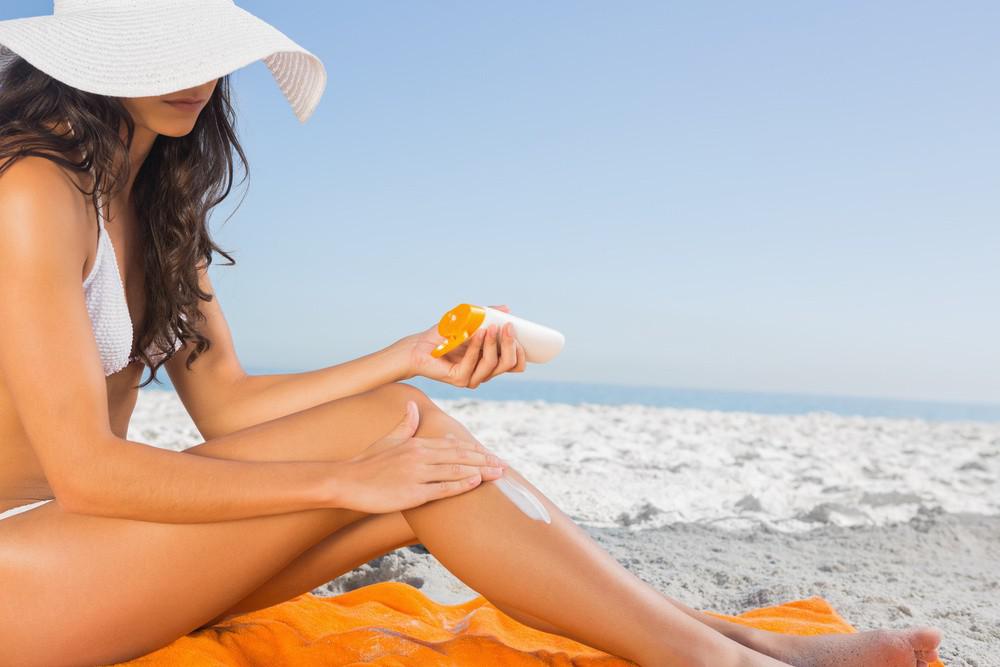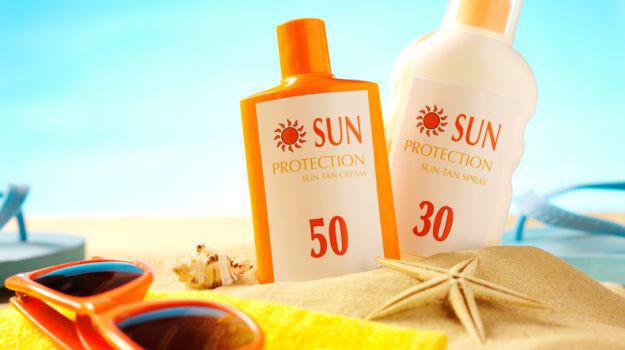
If you are concerned about skin cancer, taking care of your own and your family’s skin day to day, all year long, is one of the most important steps you can take. Exposure to sunlight, or to be more specific, the sun’s UV rays, is one of the main causes of skin cancer. Contrary to popular belief, the sun emits UV rays all year round and even on cloudy, overcast days (and yes, here in Ireland too), skin is exposed to them. These rays penetrate the skin and can trigger reactions that lead to various forms of skin cancer. Being sun smart is one of our best defences against the disease.
While I would advise using a good quality SPF all year round, suncare is perhaps more at the forefront of people’s minds at this time of year, when the days are getting longer, the weather a little warmer, and thoughts turn to holidays.
There is a lot of confusion and misinformation about sun care and SPF so I have addressed some of the key concerns below and outlined what you should be looking for from your suncare.
SPF or sun protection factor indicates how much protection a product offers from the sun’s UV rays. The number, or factor, on a sun care product shows its protection rating, so to speak, and this can vary significantly.
In a word, no. That is not how the factor rating system works. In fact while SPF 15 absorbs 93% of UVB rays, SPF 30 absorbs just a little more (97%) and an SPF of 50 will absorb 98% of UVB. In general, skin professionals recommend SPF30 to protect yourself from significant sun exposure.
You might spot this term on a product’s label – and I would recommend that you choose a product with broad spectrum protection. It indicates that the product will help protect you against both UVA and UVB rays, which damage and age the skin and can play a major role in causing skin cancers such as melanoma, basal cell carcinoma and squamous cell carcinoma. Some skincare brands use a star system to show how much protection the product offers, so this may be a helpful guide.

As I mentioned, UV rays are present all year round so the level of SPF relates more to lifestyle than climate. For example, if you are only out and about for a few minutes at a time during the day – walking from the car to the office or to the local shop - an SPF of 15 is thought to be adequate. In this day to day environment you could also choose to use a moisturiser with an in- built SPF15 or SPF30 to protect skin from this incidental exposure.
Across the board, suncare formulations have much improved in recent years and the textures of products sit much better on the skin. There are now effective, pleasant to use sprays, creams and lotions – it’s a matter of personal choice - but do be careful to follow instruction fully. Don’t forget too that sun care has an expiration date, so don’t hold on to old bottles.
If you have a holiday coming up and want to look great while on holidays, why not check out some of our cosmetic procedures.
Protecting yourself from the sun’s harmful UV rays is the first step in reducing the risk of skin cancer, but if you are concerned about your skin or that of your loved ones, arrange a consultation with me at my clinic, and to stay informed about how best to prevent the sun from damaging your skin, download our free guide to sun protection:
Download Mr Chan's Guide to Proper Sunscreen Use

If you are concerned about skin cancer, taking care of your own and your family’s skin day to day, all year long, is one of the most important steps you can take. Exposure to sunlight, or to be more specific, the sun’s UV rays, is one of the main causes of skin cancer. Contrary to popular belief, the sun emits UV rays all year round and even on cloudy, overcast days (and yes, here in Ireland too), skin is exposed to them. These rays penetrate the skin and can trigger reactions that lead to various forms of skin cancer. Being sun smart is one of our best defences against the disease.
While I would advise using a good quality SPF all year round, suncare is perhaps more at the forefront of people’s minds at this time of year, when the days are getting longer, the weather a little warmer, and thoughts turn to holidays.
There is a lot of confusion and misinformation about sun care and SPF so I have addressed some of the key concerns below and outlined what you should be looking for from your suncare.
SPF or sun protection factor indicates how much protection a product offers from the sun’s UV rays. The number, or factor, on a sun care product shows its protection rating, so to speak, and this can vary significantly.
In a word, no. That is not how the factor rating system works. In fact while SPF 15 absorbs 93% of UVB rays, SPF 30 absorbs just a little more (97%) and an SPF of 50 will absorb 98% of UVB. In general, skin professionals recommend SPF30 to protect yourself from significant sun exposure.
You might spot this term on a product’s label – and I would recommend that you choose a product with broad spectrum protection. It indicates that the product will help protect you against both UVA and UVB rays, which damage and age the skin and can play a major role in causing skin cancers such as melanoma, basal cell carcinoma and squamous cell carcinoma. Some skincare brands use a star system to show how much protection the product offers, so this may be a helpful guide.

As I mentioned, UV rays are present all year round so the level of SPF relates more to lifestyle than climate. For example, if you are only out and about for a few minutes at a time during the day – walking from the car to the office or to the local shop - an SPF of 15 is thought to be adequate. In this day to day environment you could also choose to use a moisturiser with an in- built SPF15 or SPF30 to protect skin from this incidental exposure.
Across the board, suncare formulations have much improved in recent years and the textures of products sit much better on the skin. There are now effective, pleasant to use sprays, creams and lotions – it’s a matter of personal choice - but do be careful to follow instruction fully. Don’t forget too that sun care has an expiration date, so don’t hold on to old bottles.
If you have a holiday coming up and want to look great while on holidays, why not check out some of our cosmetic procedures.
Protecting yourself from the sun’s harmful UV rays is the first step in reducing the risk of skin cancer, but if you are concerned about your skin or that of your loved ones, arrange a consultation with me at my clinic, and to stay informed about how best to prevent the sun from damaging your skin, download our free guide to sun protection:
Download Mr Chan's Guide to Proper Sunscreen Use